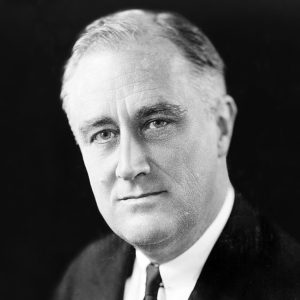Eight Republicans joined 208 Democrats to oust Kevin McCarthy as speaker of the House of Representatives and opened the door for unforeseen consequences.
There are many paths to leadership in Congress, but the tried-and-true route is having the ability and willingness to raise money to help elect candidates. As CNN reported, “Kevin McCarthy raised $21.7 million in the second quarter in 2023 … bringing the total amount he raised this cycle to $62.5 million.” The story reports that money was transferred with “$17.6 million (going to) the House Republicans’ campaign arm, the National Republican Congressional Committee, and $8.3 million directly to GOP incumbents.”
Whoever is elected speaker may face challenges raising money because most donors do not want drastic and unmanageable change, the impeachment of President Biden, or a government shutdown. So, the conference may lack funds to protect members in 2024.
Republicans lament that they lack the party discipline asserted by Nancy Pelosi when she was speaker. She had to manage the radical fringe members known as the “Squad,” but there was never a peep that they would oust her if they did not get everything they wanted. The glue that holds Democrats together is that they are the “party of more.” Every member will get at least part of what they want at some point, but they need to stick together. On vital issues, they vote as one because no caucus member wants to go to the back of the line or be primaried in the next election.
Republicans govern as the “party of less” without a doable plan for getting there. The Republican radical minority is openly critical of leaders who do not support every part of their agenda and want bills brought to the floor that cannot pass and create issues for more moderate members. That is not a recipe for organizational cohesion or long-term success. They would rather be philosophically pure in the minority than in a majority that had to compromise with Democrats.
On the other hand, The New York Times reported there are “18 Republicans who represent districts that Joseph R. Biden Jr. won in 2020. Many of these lawmakers, who include 11 newcomers, have indicated a greater willingness to work on bipartisan legislation than their peers.”
The trouble with the moderate approach is that compromise still provides Democrats with “more” and leaves Republicans to explain why they can’t control spending, making either approach a lose-lose for House Republicans.
Many Republican purists point to Ronald Reagan as the true north star of conservatism. They do not understand that Reagan was a pragmatist and an excellent issues manager. He kept his focus on the big things and was always willing to bargain to get or keep what was most important to him. Reagan’s profile by the National Governors Association captured these skills as governor of California: “During his first term, Reagan temporarily stopped government hiring to slow the growth of the state workforce, but he also approved tax increases to balance the state budget. He cut funding for the University of California, a center of the student protest movement of the late 1960s, but after protests died down, he increased funding for higher education.”
He did the same as president when he never enjoyed Republican control of both houses of Congress, building his brand by linking his policies to growing prosperity in America. House Republicans have no idea how to grow support using the effective management of issues.
The first move of the next speaker must be the right move for moving America forward. Neither impeaching Biden nor disrupting the government by shutting it down are issues that grow support for Republicans or alter their current course toward contraction. The speaker will need to gain control of the narrative, and to do that he needs to address big issues that matter to the American people and craft workable solutions.
That will require carefully selecting a problem they can solve (not a process issue like regular order) and delivering small results quickly to show that House Republicans can be trusted to craft a bigger solution.
Republicans should look to Reagan for inspiration but also to Franklin Roosevelt to learn how he asked for and was given permission to fundamentally change the relationship between the American people and the federal government before he enacted his New Deal beginning in 1933.
This is a requirement for a party that wants to rethink how the government delivers services and change the trajectory of government spending. FDR built momentum and support throughout his first term in office because he solved well-framed problems by delivering measurable results. The next speaker should understand that action needs to build support.
House Republicans need to be focused on things that matter to the American people and on leaving the American people wanting more of what Republicans are delivering. That is what FDR did in building a governing coalition that would last for generations.

